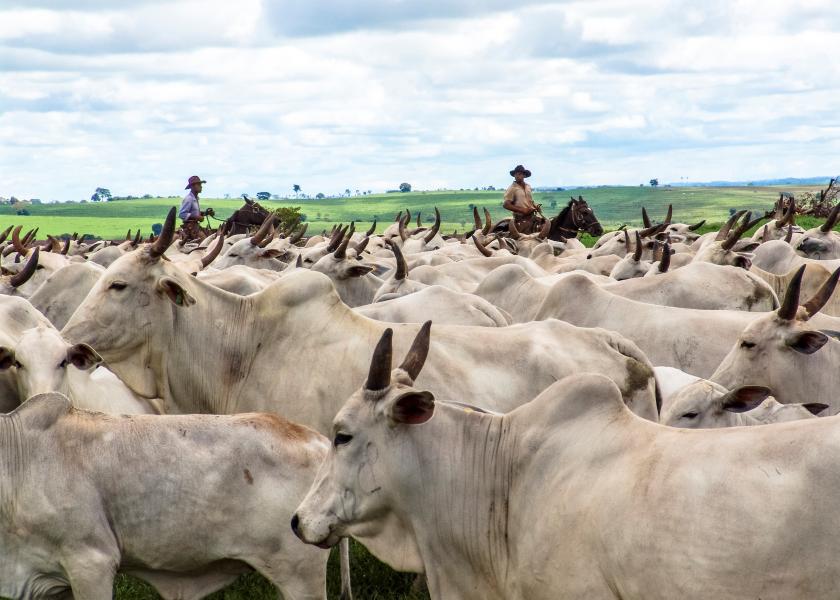Sen. Tester Proposes Bill to Stop Brazilian Beef Imports

U.S. Sen. Jon Tester (R-Mont.) introduced a bill that would suspend imports of Brazilian beef until USDA can conduct a safety review. In a statement, Tester said the bill was in response to repeated issues with delayed reporting of Bovine Spongiform Encephalopathy (BSE), or Mad Cow Disease, in Brazilian beef.
“Montanans demand the highest level of safety and certainty in their beef, and Brazilian imports aren’t making the cut,” Tester said. “Folks expect their beef to have been rigorously tested against the strictest of standards, and concerns about Brazilian imports not only jeopardize consumer trust, but present a serious risk to Montana producers. We owe it to our domestic producers and consumers to halt Brazilian imports until we can guarantee their beef and reporting standards are making the grade.”
This week the National Cattlemen’s Beef Association (NCBA) and R-CALF USA have called for U.S. Ag Secretary Tom Vilsack to end the import of Brazilian beef to the U.S.
“NCBA has serious concerns that the recent events are evidence that Brazil may lack credible food safety and animal health systems, and Brazil’s irresponsible behavior may pose a significant threat to the health and safety of the U.S. cattle herd,” NCBA said in a letter to Vilsack.
Brazil raised concerns about its BSE safety protocols when it announced in September two cases of atypical BSE that had been detected in June. Typically, countries report BSE discoveries to the World Organization of Animal Health (OIE) within 24 hours. Tester said that delay broke “trust with the OIE and global trading partners.” He said Brazil had also waited months or years to report similar cases in 2019, 2014 and 2012.
Tester’s statement said Brazil enjoys preferential market access on the global stage due to its designation as a “negligible risk” exporter by OIE. “While rare, one-off instances of atypical BSE do not necessarily indicate systemic issues with the health of Brazilian cattle herds, repeated delays in reporting suggest an overly lax food safety regime and raise concerns about the reporting of additional dangerous diseases such as Foot-and-Mouth Disease, African Swine Fever, and Avian Influenza,” the statement said.
Tester’s bill would impose a moratorium on Brazilian beef until a group of food safety and trade experts has made a recommendation regarding its import status. The legislation is supported by the U.S. Cattlemen’s Association, the National Cattlemen’s Beef Association, and R-CALF USA.
“We cannot wait for an endemic animal disease to reach our borders before we take action,” said Leo McDonnell, Director Emeritus, U.S. Cattlemen’s Association. “There is a clear and present threat associated with the importation of Brazilian beef imports that we need to halt immediately. Further, the establishment of a working group will allow all stakeholders of the U.S. beef and cattle industries to have a voice in evaluating the threat to American producers and consumers posed by beef and beef products imported from Brazil.”
“US cattle producers have a longstanding track record of meeting USDA’s rigorous oversight standards in order to promote public health, food safety, animal health and well-being – and any country who wishes to trade with the United States must be held to those same standards,” said Ethan Lane, National Cattlemen’s Beef Association.
“R-CALF USA greatly appreciates Senator Tester’s leadership in protecting both the U.S. food supply and the U.S. cattle industry from the possible introduction of beef from a country with a long history of food safety infractions,” said Bill Bullard, CEO, R-CALF USA. “American consumers and cattle producers deserve no less.”







